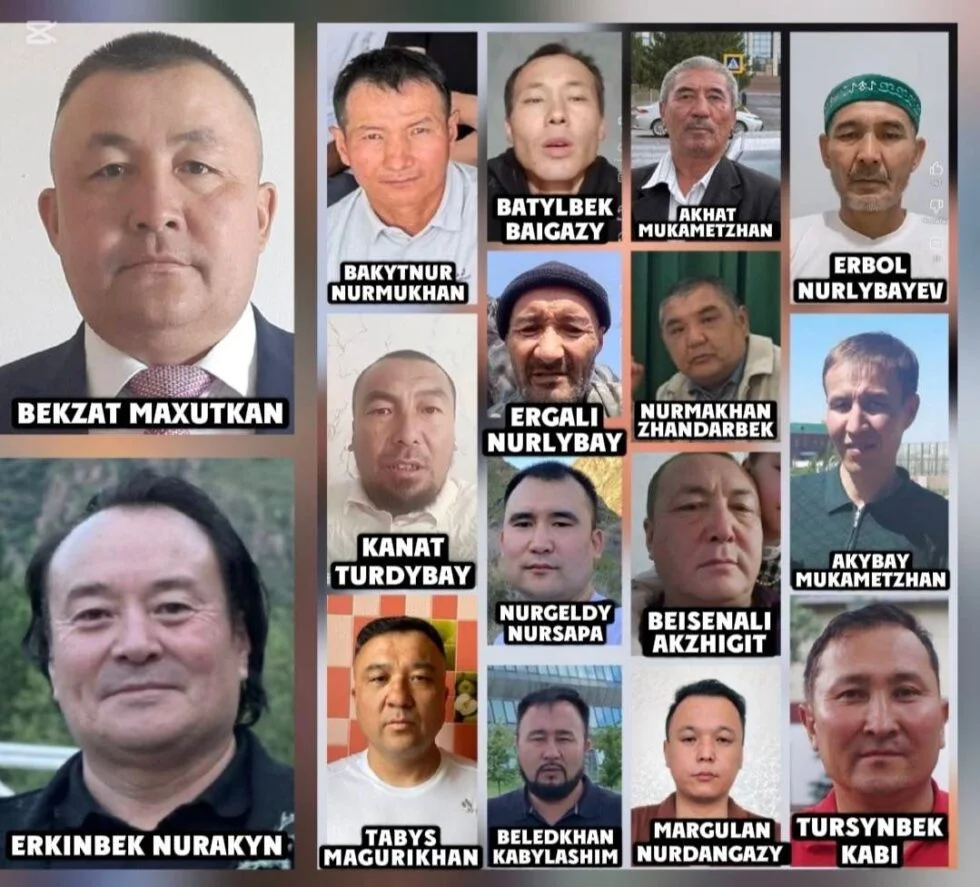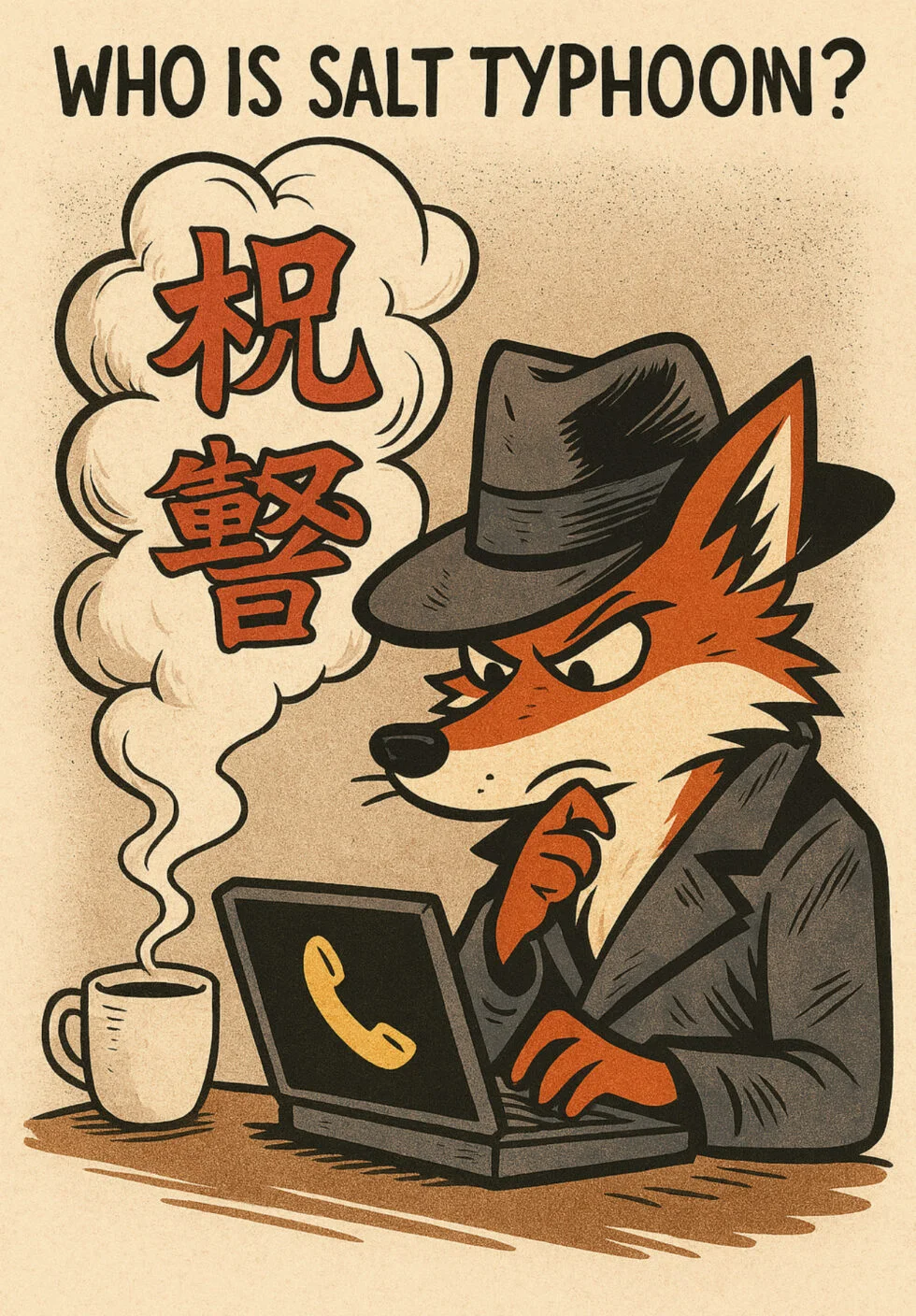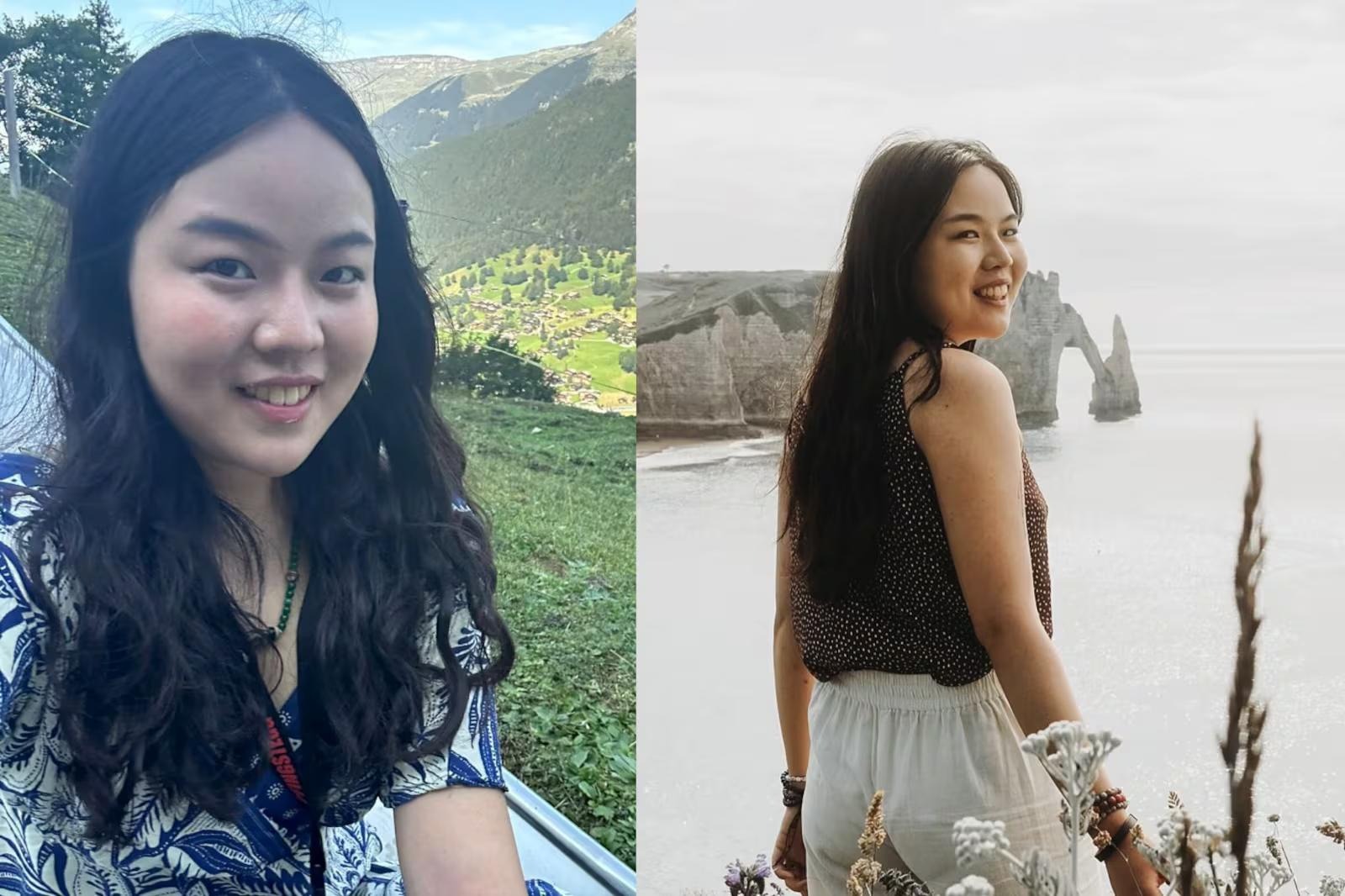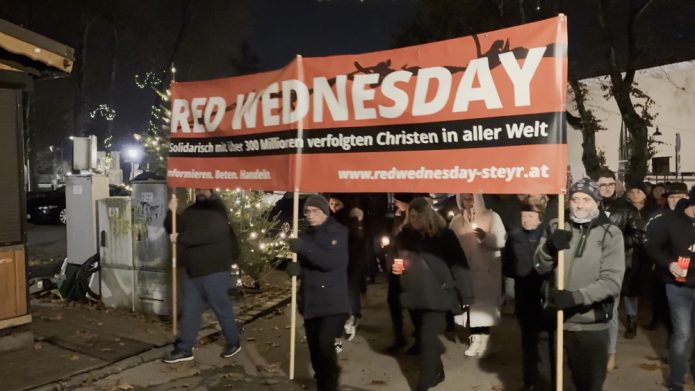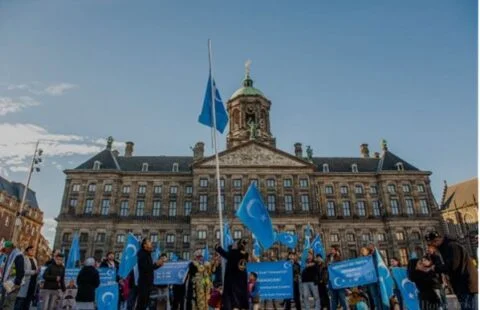Author: Zhou Tao
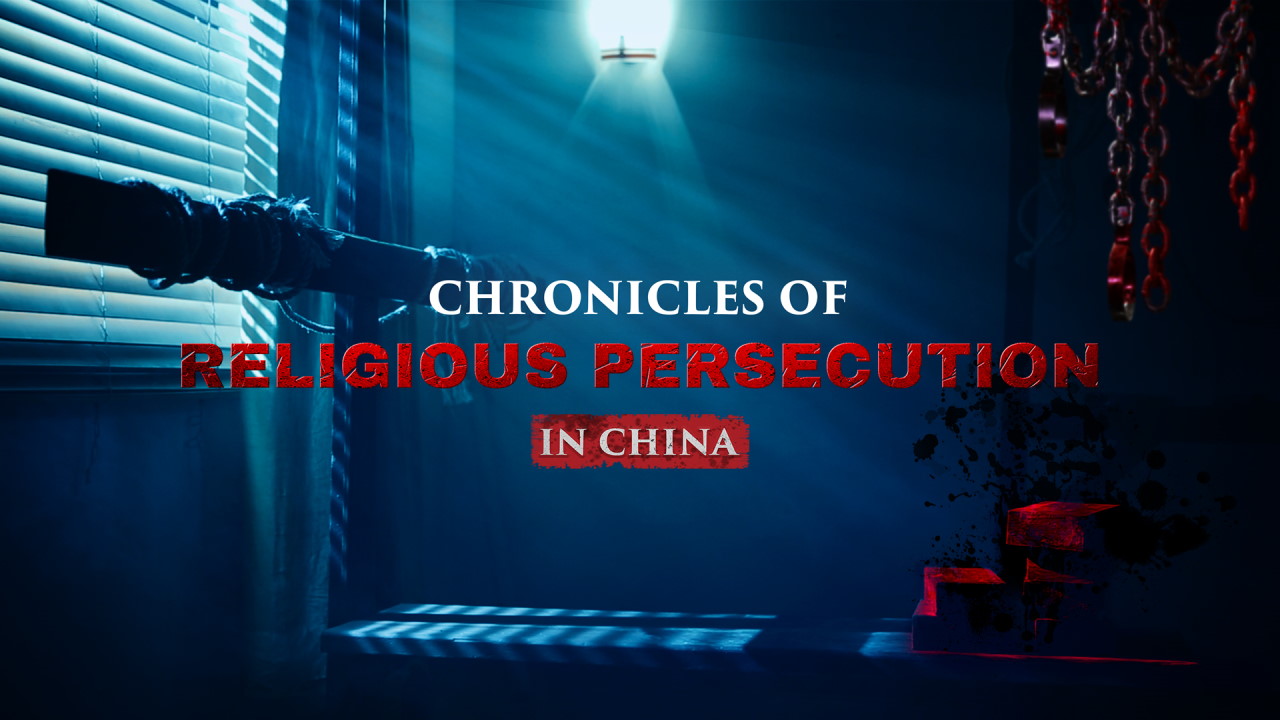
December 26th, 2016, was the day my mother died. The weather in Huai Bei (a city in northern Anhui Province, China) that year was exceedingly frigid. The cold, which seeped deep into your bones, had frozen the earth solid. Shattered by my mother’s death, my broken family was all the more despondent.
I silently stood guard over my mother’s body and my father’s remains. As I thought of my father, who used to smile broadly when he talked, my weeping mother, and my grandfather with his crooked back, I was lost in sorrow. I couldn’t understand the ways of such a world. The beginning of all of this was our faith in God, but I couldn’t shake the question of why the freedom of religion did not exist in China.
In 1997, the year I turned 17, police officers arrested my father and persecuted him to death for no other reason than his faith in God. Unable to endure the pain and sorrow of losing his son, my grandfather, too, passed away after poisoning himself several years later. Having had a nervous breakdown after my father’s wretched death, my mother also recently left our side.
The dead do not come back, yet we had nowhere to direct our pleas. In the face of persecution and oppression under the dictatorship, we simply swallowed our feelings of injustice as we suffered, thinking that the light at the end of the tunnel was hopelessly out of reach. Time continued its ceaseless march, but the thought of my father, who met a terrible death, remained with me like a bar sinister, as an indelible lifelong pain.
The family that accepted Christ
My father’s name was Zhou Haijiang. He was hardworking, good-natured, and had a big heart. Born into a landowning family, he was regarded as having undesirable lineage by the Communist Party’s government, and was subjected to all manner of persecution and social contempt from a young age. But endowed with skilled hands, he lived an industrious life, working as a carpenter and plasterer in addition to running several modest business ventures. As a result, my family was well-off in the 1980s. When neighbors or relatives visited to borrow money or some appliance, my father rarely sent them back empty-handed.
In 1989, my family started to believe in God on account of my father’s failing health. At the time we attended Local Churches (known as “Recovery Churches,” a native Christian movement that originated in China). Thanks to the grace of God, my father began to regain his health, restoring happiness to our home.
My father would say that humankind was created by God and that because human existence originated in Him, believing in and following Him was the only right path in life. Yet the atheist government of the Chinese Communist Party persecuted and oppressed those believers who trusted and followed God. The arrest and imprisonment of fellow brothers and sisters of the faith was a frequent occurrence. Thus, we had to worship in secret.
The police arrest my father
In 1991, my entire family believed in Almighty God of the last days. Finding truth in His words, we were filled with joy, and we drew great pleasure from getting together to read the gospel and fellowshipping with one another. The government had begun to increase its persecution of house churches, but my mother and father were unwavering in their faith and duty.
My father was arrested and taken away for his faith twice, once in the summer of 1993, and later in the winter of 1994. Fortunately, he was able to go free on both occasions, having moved mountains to do so. But in 1996 the Communist Party launched a nationwide crackdown campaign. At the time, many leaders of house churches were arrested and given prison sentences while others fled in all directions, casting a bleak terror over all of China.
One evening, after taking a stroll outside the house as a precautionary measure, we gathered together to sit underneath the delicate evening light. My father spoke with determination in his voice.
“The Lord Jesus said, ‘If the world hate you, you know that it hated me before it hated you.’ [John 15:18], and ‘And fear not them which kill the body, but are not able to kill the soul: but rather fear him which is able to destroy both soul and body in hell.’ [Matthew 10:28]. Believing in God is the right path and so we must continue on it, no matter how bad the persecution may be.”
In spite of the harsh persecution of the Chinese government, my father did not shirk reading God’s words with us. As a result, we drew strength and faith from His word.
On April 29th, 1997, upon receiving an urgent piece of news, my father and I left behind the plastering we were doing at a construction site to head home, where my brother-in- law, along with his father, rushed into the house and said in frantic tones: “Father, Brother Luo from our church was arrested by the police after being caught spreading the gospel. There are church assets being kept at his house, but if the authorities raid the house they will confiscate them. I think we should quickly move them somewhere else.”
Hearing this, my father declared it an emergency and said that we must act swiftly. So the three of them headed to Brother Luo’s home on bicycles. When the day grew dark, they moved the assets to a safe location. It was past midnight, around 2 in the morning, when they finished moving everything. Then they began to head back home on their bicycles.
The night was deep, with a chill in the air, and a silent crescent moon hung in the sky, where twinkling stars diffused their light. My father, my brother-in-law, and his father came up on to the road, where a powerful and blinding light greeted them. It was a patrol car, with several police officers inside. The car stopped and several uniformed officers got out and blocked the path, shouting.
“Don’t move! Stand right there! Where were you?” Recognizing my father, the officers said, “Isn’t this Mr. Zhou Haijiang? You’ve been evangelizing again, haven’t you?” Before my father could respond, the officers said, “Handcuff them and take them to the station!”
When my father protested, “Why are we being arrested when we haven’t even committed a crime?”, the officers responded: “Didn’t commit a crime? Believing in God itself is the crime! You’ll have to come with us!”
Despite the complete lack of evidence, the officers dragged my father and his companions to the police station. After my father was arrested and didn’t return home, my mother paced by the door on tenterhooks all night, occasionally glancing outside.
At dawn, my older sister came to the house. When she walked through the door and noticed my father’s absence, she anxiously said, “Mother, the Communist Party is rounding up and arresting Christians right now, and father and Shengli (brother-in-law) still haven’t come back. Could something have happened?”
After my mother replied, “Then you should stop by the homes of our brothers and sisters and ask around,” my sister headed to the church to make inquiries, forgetting to even bring her bicycle into the front yard. But even after she checked all their houses, my father was nowhere to be found. An ominous foreboding began to set in.
Later, after asking around some more, we learned that my father had been taken to the police station. Burning with anxiety upon hearing this, my mother had an acquaintance visit the station to obtain news about my father. With a pitying look, the acquaintance who had gone to investigate said:
“I went to the police station and saw Uncle Haijiang, but he was confined in a dark room with only a small window hole. He told me that the officers had pressured him into confessing to missionary work by mercilessly beating him. His face was covered in cuts, and I couldn’t bear to look at him.”
Hearing this compounded my mother’s anxiety. She tried to pay for my father’s release through some personal connections, but the police station refused.
On the afternoon of April 30th, my mother headed to the police station to bring my father a blanket and see his face. But a visit wasn’t granted, so my mother had to watch from afar as my father, a normally hardy man, limped from the beatings he had received as he washed the police cars in the courtyard.
That was the last time my mother saw him alive. Though she had come so close, the officers cold denial of her wish to see him forced her to simply look on from a distance.
That evening, we heard that my father had been moved to another location in the afternoon. As we could not obtain his whereabouts, the anxiety caught up with us, and all we could do was quietly pray to God, asking Him to give our father the strength and protection to stand tall in the den of the Communist Party.
My father’s tragic death
On the afternoon of May 2nd, I stood by the river bank, lost in thought. The water was flowing serenely as it always did. The entire village was as quiet as a mouse. Just then, my fourth great uncle (70 years old) ran toward our house in a great hurry, shouting:
“Zhou Tao, what are you doing just standing there? Your father was beaten to death at the police station.”
Shocked by these words, I ran like an arrow toward my house. My great uncle then hurried off to his younger sibling’s house next door, shouting:
“Brother, Haijiang was beaten to death at the police station. The village secretary is at my house. Come quickly!”
Having heard this news at home, my mother began to wail. I followed my older brother and my grandfather to my fourth great uncle’s house. Many people had gathered there, including my fifth great uncle, my paternal aunt, and some neighbors. The village secretary spoke, “According to the police officers, Haijiang hanged himself in the station conference room around 2 in the morning.”
The moment he said this, a burst of indignation erupted from everyone present, who told the village leader not to tell such ridiculous lies. My fifth great uncle (around 70 years old, a retired teacher) shot back:
“Killed himself in the conference room? Don’t they have a place for locking people up at a police station? Yet you’re saying they kept him in the conference room?”
“A conference room is not someplace for locking someone up, not a chance. He’s been beaten to death, without a doubt!”
Our neighbors also heatedly spoke up: “What’s so illegal about believing in God? How could they beat an innocent man to death!”
The village secretary spoke up again. “The police officers told me to spread the word that the body has already been moved to the local crematorium.”
The news that my father’s body had been moved to the crematorium angered my family even more. “It seems like they’re trying to secretly cremate him without even getting the family’s permission.”
Feeling we needed to see his body, my family prepared to head over to the crematorium. But blocking our way, the village secretary said, “The director of the police station, Mr. Ma, said that if you agree to settle this privately with a mutual understanding, he will offer you a sum in compensation.”
Hearing this, my fifth great uncle grew furious. “We’ll be pursuing this to the very end for the wrongful death of the deceased, even if we receive nothing!”
“That’s right! We will deal with the murderers according to the law. We can never agree to a private settlement!”
My paternal uncle spoke. “We need to litigate this and demand a fair ruling!”
Trying to quell such notions, the village secretary began to lay out one excuse after another, saying that, “Haijiang is already dead, so why does it matter if you see his body or not? Would it not simply add to the pain?” But the more he tried to dissuade us, the more suspicious my father’s death seemed.
When we arrived, the crematorium employee, in league with the police, adamantly refused to show us my father’s body. With nothing else to be done, we returned home full of nothing but disappointment.
We turned over every stone in search of some kind of personal contact who might be able to help us see my father’s face for the last time. On May 10th, we were able to see him, before he was cremated.
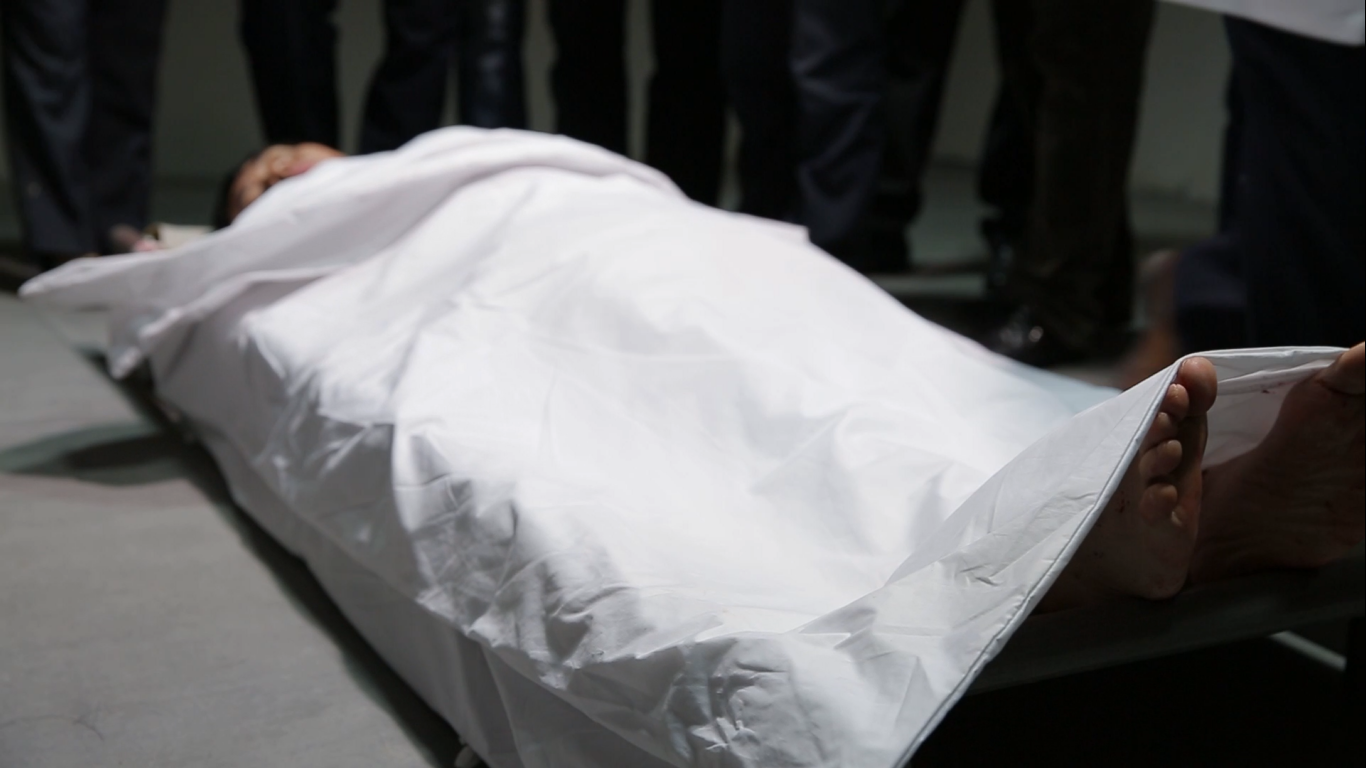
That day was one that I will never forget. A group of us, including my mother, older sister, grandfather, older brother, and about 20 relatives, arrived at the crematorium. The crematorium worker retrieved my father’s body from the morgue. Covered in white cloth and placed on an emergency stretcher, my father’s body was dressed only in his undergarments and covered with bruises. The area below his Adam’s apple and around his neck showed traces of choking, with the surrounding skin torn and blotched with blood, large amounts of which had also gotten on the stretcher.
A wound, about 3 cm long, ran across the right side of his head, as though he had been hit with a blunt object. The bridge of his nose, the corners of his eyes, his cheeks, and lips, among other areas, showed dark cuts, as though he had been struck with a club. On his back and waist, there were about four gashes roughly 4 cm long, and his hands were balled tightly into fists. His face was badly disfigured, his eyes open and mouth agape. Even at a glance, it was apparent that he had thrashed around in terrible agony before taking his last breath.
Seeing my father’s brutalized corpse, the world seemed to be collapsing around us. Weeping loudly, I spoke: “Father, even if I have to sell off all my belongings, even at the risk of life and limb, I will seek justice for your death!” Concerned that my mother would suffer even greater anguish from seeing the image of my father’s abject death, my older sister stood by her side supporting her and holding her back from being close to my father’s body. My mother wept violently, clawing at her bosom, passing in and out of consciousness. Our relatives, for their part, forcefully rebuked the crimes of the police.
“Seeing the wounds all over his body, it’s unmistakable that he was beaten to death!”
“If he had hanged himself, the marks would be left under the chin; it’s impossible that it would leave marks underneath the Adam’s apple. Looking at these wounds, there is no way that he hanged himself.” The relatives present spoke through their tears.
“The Communist Party is lying! It’s clear that Haijiang was choked and beaten to death!”
“The reason the police officers moved the body to the crematorium without informing us was because they were trying to hide the evidence!” A heart-rending wail and the sounds of condemnation abruptly swelled up throughout the room.
My father had always been of sound health, with an active and resilient personality. He often told us stories of how during the Cultural Revolution, our landowning grandfather had suffered numerous abuses and criticisms from the Communist Party, and that this had led to many indignities against my father as well.
Furthermore, despite having been arrested twice for believing in God, he never once thought to give up his life. So how could it be that he took his own life just three days after being arrested? At last, our rage drove us to sue.
The police’s threats
Several days later, after two weeks of detention, my brother-in-law and his father were released. According to my brother-in-law, after they had been taken to the police station at around 3 in the morning on April 30th, the officers held them in separate cells, where they were interrogated all night. Two officers in their 20s, seeking information about the church, tortured my brother-in-law and pressured him to confess. While one clamped my brother-in-law’s head between his legs and pressed down with his hands, the other stripped him of his clothes, struck his legs and back with a belt, and kicked him in the legs. “So you didn’t engage in evangelizing? If you don’t admit it, I’m going to beat you to death.”
The beatings were merciless. They stopped only when the leather belt ripped, after which they locked my brother-in-law up in a dark room. When the interrogations resumed the next morning, the officers kicked him in the face with a shoe on when he refused to speak. His face immediately became red and swollen, and crimson blood streamed down his lip. When my brother-in-law maintained his silence, the officers viciously beat his head and body with a metal pipe about 2 cm thick and 70 cm long. His head was covered in blood blisters and blue bruises appeared on his body. Several areas began to fill with extravasated blood, as the soft tissue in his body ruptured. My family realized then just how cruel and wicked the Communist Party truly was. Stricken with grief about my father’s death, we decided to hold his killers accountable before the law.
Worried that things might escalate, the police sent two men named Mr. Xie and Mr. Wang to dissuade us. They alternated between cajoling and threatening us. “Mr. Ma says that if you quietly settle he’ll give you 50,000 yuan as compensation, but if you litigate this in court, he won’t give you anything. So give up the lawsuit. Give it some thought. How many lawsuits have regular people won against the officials?”
“How many wrongful deaths have there been? As you yourselves know those people are all from government departments, do you think you can beat them with a lawsuit? Since your children are still young, if you settle you can at least look after them with the money you receive!”
But my family, still enraged after seeing my father’s wretched death, insisted on suing and revealing the truth. Later, the officers showed their true colors. Mr. Xie began to issue threats.
“Instead of suing, just listen to me. What will you do if, by stubbornly insisting on suing, somebody were to break into your house late at night to harm you? How do you expect to survive in the future?”
Furious, my fifth great uncle spoke up. “Are you trying to scare us? The more you speak like that, the more you are confirming that Haijiang’s death was wrongful!” And then he chased them out.
My family did not bend. But now that we were left by ourselves, my mother and the rest of my family spent each day fearful of the threats and intimidation. Afraid that the Communist government might harm us at any time, we could not muster up the courage to even go outside in the evening and instead we kept our doors tightly locked.
The broken legal system
We kept litigating. Conscious that the news of my father’s death at the hands of the police had spread among the local residents, and wary of public sentiment, the courts arrested Mr. Wang from the police station. Mr. Wang admitted to torturing my father, but retracted his testimony before the ruling was made. He said instead that he was being manipulated by the police station and had falsely shouldered someone else’s wrongdoing and that there were other co-conspirators.
But the local procuratorate did not arrest the people that Mr. Wang identified, but even released Mr. Wang on bail pending trial. Later, the courts sentenced Mr. Wang to three years, but he served his sentence outside the prison. The ruling was simply a formality.
One anonymous police officer said, “The director of the police station first tried to put the crime on me. He promised me that I would only be detained for a few days for appearances, after which he’d have me released. He said that I would only assume nominal blame without bearing any real responsibility. Because I refused, he tried to get Mr. Wang to take the blame instead.”
My 70-year-old fifth great uncle took the car nearly every day in pursuit of the case. But he grew completely fatigued as the police, prosecutors, judiciary, and public officials shielded one another. As a retired teacher, seeing society so corrupt deeply disappointed and upset him. “Ordinary folk have nowhere to turn to. How hard it is to uncover the truth about Haijiang’s wrongful death,” he lamented. Our relatives and neighbors began to whisper amongst themselves.
“The Communist government is truly a wicked one. They prohibit those who believe in God from worshipping and praising Him, while they don’t bat an eye when public officials buy and sell their positions, embezzle money and take bribes, wantonly eat and drink, go around womanizing, and gamble.”
“From the time the Communist Party began vigorously cracking down last year up until this spring, so many Chirstian leaders were captured and imprisoned. Venues of worship were expropriated. In China, believing in God and being a good person seems to be lost on everyone.”
“Why, the Communist Party is a bunch of robbers and thugs. Nobody will be held accountable if a believer in God is beaten to death. Even if you’re beaten to death, you have nowhere to appeal.”
Hearing my relatives lamenting loudly, angry but without recourse, the promise to reveal the truth at any cost that I had held close to my heart shattered and vanished. The setting sun that day was as red as blood, and the tall grass on the roadside looked like disheveled skeins of hair. Depressed, I just left home and wandered alone on the road.
Murderers who had taken the life of my father had not been brought to justice by the law, and the Communist government was distorting and suppressing the truth of my father’s persecution and death. Though we were beside ourselves with rage, there was nothing we could do.
Our gradually disintegrating home
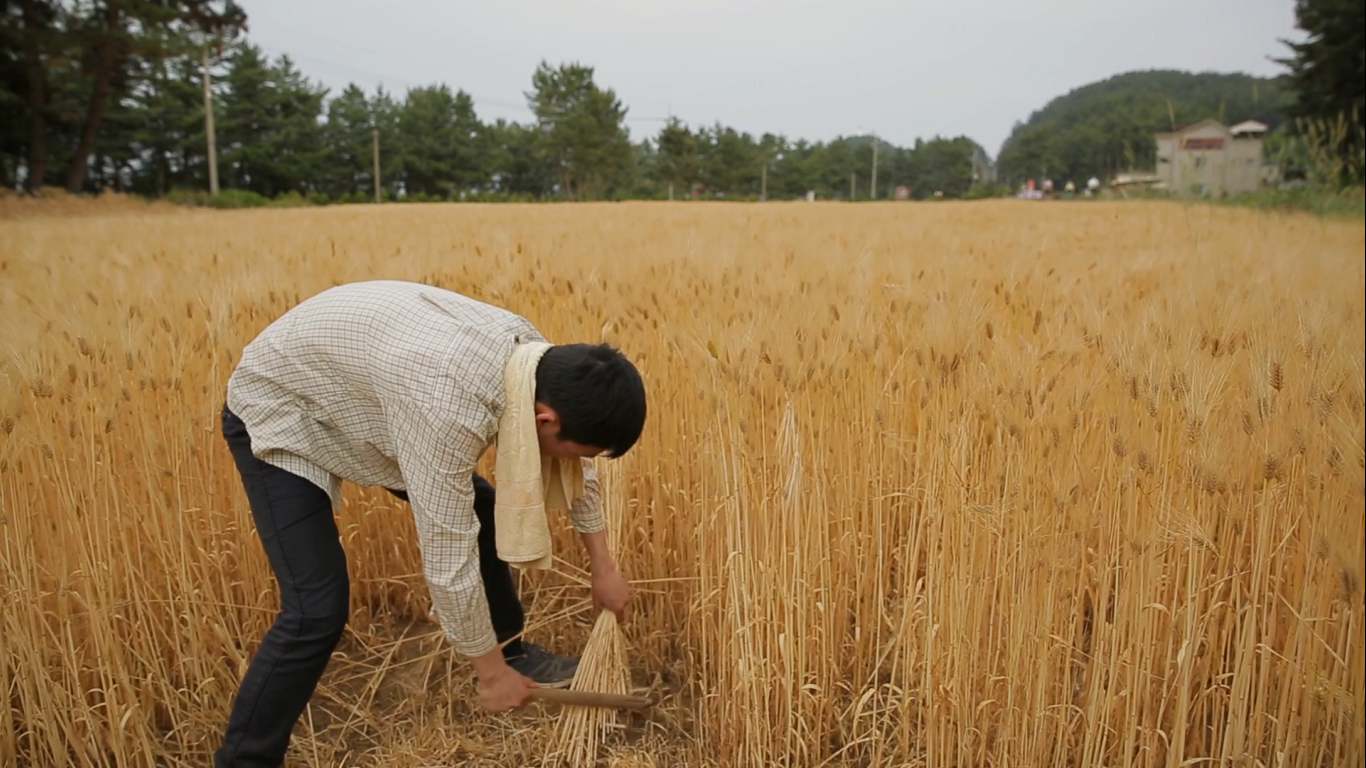
My father’s death hit my family hard. Having lost the head of the house, my mother had to take on the grueling farm work alone. Due to police surveillance, brothers and sisters from the church could only visit and offer their assistance sparingly, and my relatives’ help, extended at first, slowly became more scarce.
After my father’s persecution and death, the government began to spread defamatory lies that he had committed suicide because of his faith in God. They began to agitate in the village, telling residents that believing in God was a crime prohibited by the state, and to report any believers they encountered. As the government continued its smearing of Christianity and ramped up its crackdown, the villagers began to avoid and discriminate us.
They began to gossip about my mother, spreading false rumors. Deep in grief, my mother had to shoulder the family burden, and on top of that was forced to silently endure the contempt and ostracization of the villagers. Her already frail frame grew even thinner.
Whenever she thought of my father, the image of his brutalized corpse flashed before her eyes. She wept often, tormented by the guilt of not having been able to seek redress for the injustices against him. Sometimes she would be sitting in the yard when she burst into a disorienting flood of tears, and other times she would fall into long crying spells in front of my father’s grave. On some days, she would cry out of frustration, not knowing how she would manage the farm work that lay before her. When my mother would cry, I would have to console her, tearing at my own heart.
“Mother, don’t cry. You have me!”
But it was of little use, and she would continue to sob. She cried so much that she developed an eye infection, which would drip pus, and eventually lost sight in one eye. Psychologically, too, my mother was deeply affected by my father’s brutal death.
Once an optimistic and spirited woman, my mother fell into a depression after my father’s death, losing her vitality and retreating into silence. Moreover, because of the police’s threats during the lawsuit, she would frantically come looking for me if I ever left her sight, for fearing that something would happen to me. Once, when I got into a small argument with my older brother, my mother began to exhibit signs of extreme anxiety and became greatly distressed. Sometimes when others spoke to her, she shrank back in fear.
Seeing my mother in such a state frustrated me. When the villagers, deceived by the false rumors spread by the Communist Party, shunned and derided us, I held in my tears and said nothing of it to my mother, fearing it might upset her.
We were forced to hold our tongues, even when our neighbors’ livestock would wander onto our land to graze on our crops, or when they would plow their way into our fields. Sometimes, when I would catch one of the neighbors stealing sweet potatoes that I had planted and remonstrate with them, they would be the ones who grew indignant. “Why are you acting like I’ve stolen something? I’m only going easy on you because you have no father; otherwise, I would have taken everything.” Even in the face of these affronts I had to remain silent, swallowing my tears.
Nowhere could I vent this anguish in my heart. I would console myself by quietly crying under the covers after my mother had fallen asleep. Once I was cheerful and extroverted, but my father’s death had deeply affected me, and I lived every day burdened by these realities.
Though I was just a helper to my father when he was alive, I became the head of our household when I came of age. Faced with the task of having to do the grueling farm work alone when it came time to plow the fields or harvest the crops, I felt utterly hopeless.
The year my father died, my grandfather was about to turn 70. Having lost his wife early in life, my grandfather had to endure the added anguish of outliving a child at an old age. Having lost nothing less than his only son to the police’s brutal beatings for his faith in God, my grandfather struggled to bear the pain. I always heard my grandfather cry into the night. The son’s tragic death lingered on in the memory of my grandfather and caused so much pain that had him give up his life. In 2005, on a pitch-dark and still evening without so much as a breeze in the air, a dim light glowed in my grandfather’s room. As the rest of us slumbered, my grandfather settled himself on a bed in the main building that faced the front gate, where he drank a lethal dose of agricultural chemicals to quietly take his own tormented life.
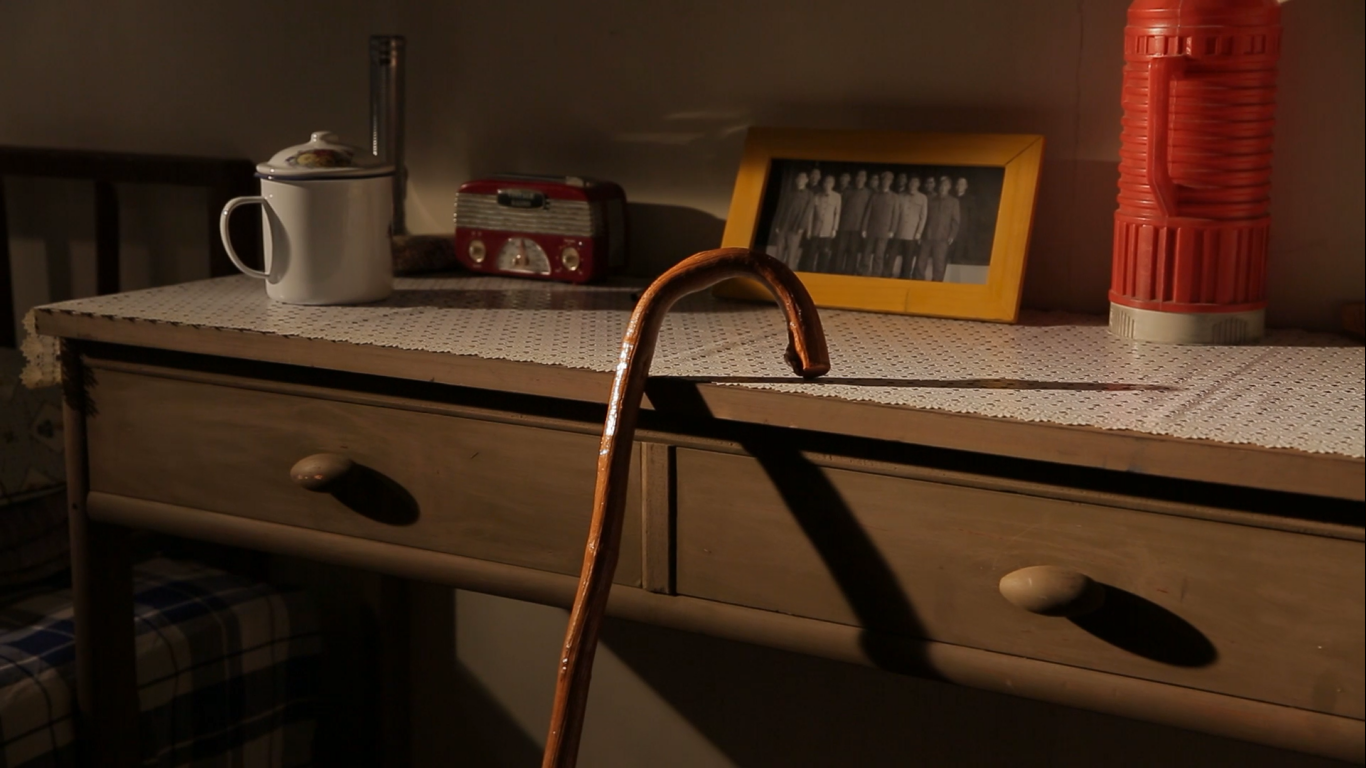
My grandfather’s death plunged our family into deeper sadness. My feeble mother’s health was worsening with each passing day. Our neighbors began to gossip about how a once-normal family was torn asunder and scattered to the four winds at the hands of the Communist Party.
To my whole family, no matter how many years have passed, the pain caused by the father’s tragic death cannot be erased.
Eternal pain
On a day in 2011, my wife and I passed by a square in the city, where we heard a song. Accompanied by pipa and erhu, the musicians were singing a song that seemed to falter and taper off before picking up again in a sad and melancholy tone. The sad singing caught my ear from afar.
“My father, who would hoist me up on his shoulders on rough roads, hug me in a warm embrace in the cold, and shield his family with his hands in wind and rain; my father, who would quietly give us all that was good while seeking nothing in return, time is turning your hair white, your face misted with memories that do not fade. My father, who remained true despite the passage of time, how could I forget your lonely figure walking away? O father, my father, I never knew how precious your tireless heart was. O father, my father, please don’t leave. I long for us to be together forever.”
Visited by thoughts of my own father who had died so tragically, I was filled with an uncontainable sorrow, and I broke down in a torrent of tears. Images of my father, who had loved and cared for us when he was alive, and the thoughts of all the suffering that my family had gone through after his death, played through my mind like a panorama. Stricken with grief, I collapsed in the middle of the street and began to cry as though my heart would break. My wife’s efforts to calm me were of no use. I let out all the oppression, the anguish, and the injustice.
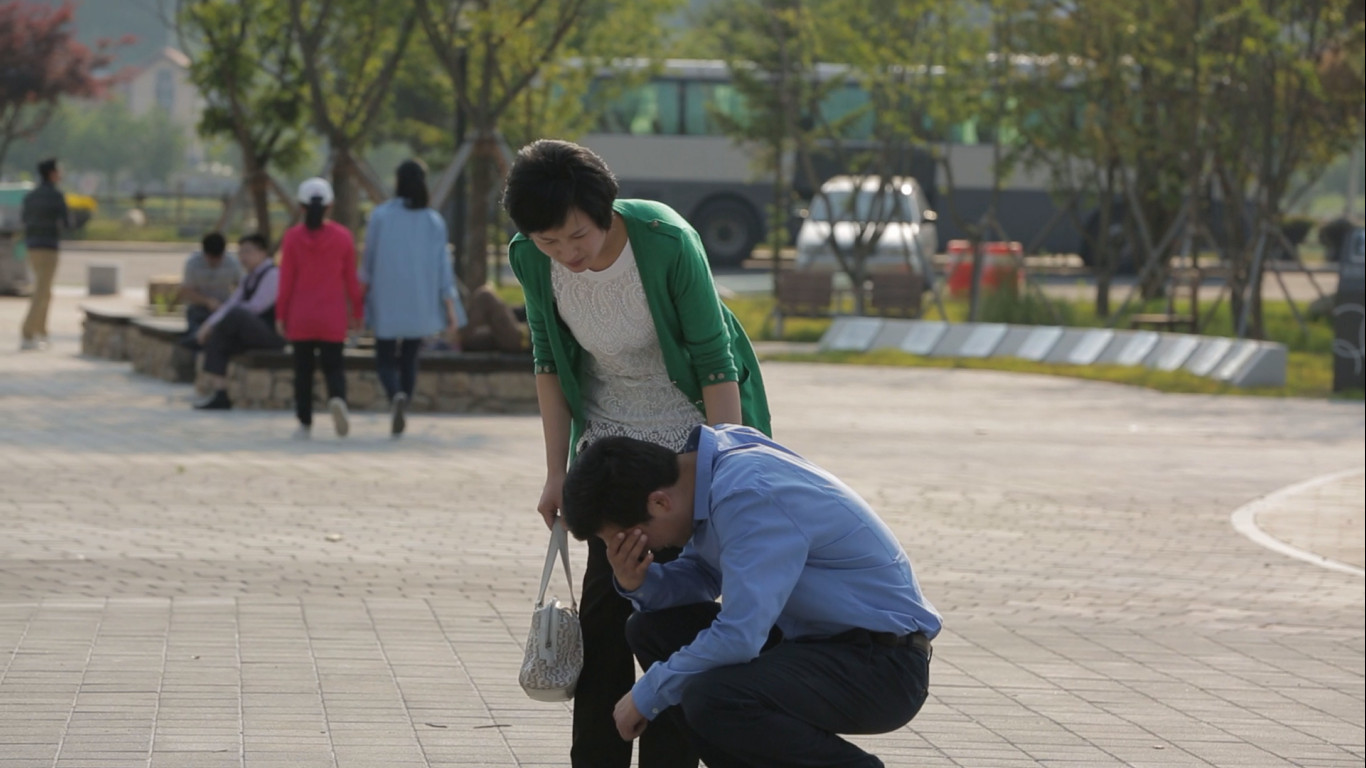
In 2016, my mother’s illness worsened. Although her children were close by and looked after her, she had always felt lonely. I knew that we couldn’t fill my father’s shoes. My mother’s pain wasn’t only due to her physical ailments, but also to my father’s death and the Communist Party’s slanders and threats. On December 26th, my mother left us for good. In addition to dearly missing my father, she bore till her last breath the guilt of having been unable to redress the injustices against him.
Thinking of the solitude and anguish that she had suffered for 20 years, I found myself weeping as I organized her things. The cold winter wind pierced deep into my bones as though it might swallow everything it touched, spreading its chill to all the blood in my body. But my head grew clearer. Although 20 years had passed since my father had passed away, the bitter memories of the past remained vivid. How happy would our family have been if not for the Communist Party’s persecution? It is astonishing to think that my father’s murderer is shamelessly still living his life, free from legal consequences, while my father’s unjust killing at the hands of the Communist Party has gone unresolved. On top of all that, after my mother passed, the government spread rumors that our faith in God was the reason for our downfall. But my family knew all too well that the perpetrator behind this tragedy was none other than the Chinese Communist Party!
As I write these final words, the day is beginning to break. I believe, in my heart of hearts, that someday God will punish the wicked Communist Party for its barbarity and evil, and that even China will one day have the freedom of religion!
About the author: Zhou Tao (39 years old) is a Christian who attends The Church of Almighty God. His father was killed by the Chinese police for his faith in God, bringing their family to ruin.




